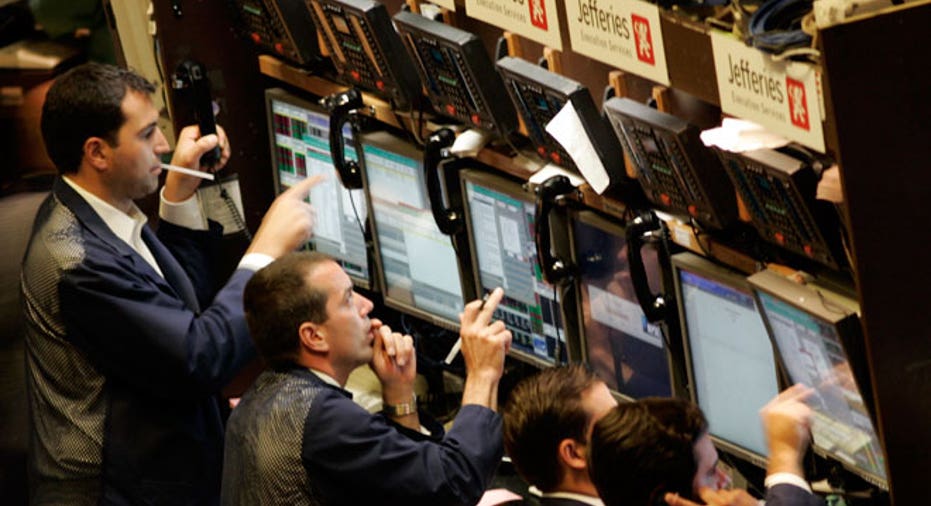Brighter IPO Outlook Cushions Emerging Markets

From Tunis to Beijing, emerging market companies are gearing up to tap equity investors for capital, potentially grabbing the interest of stock buyers who might otherwise retreat on the ebb tide of cheap U.S. funding.
This year is shaping up to be a strong one for new equity issuance in the developing world, defying a disappointing start in broader emerging equities after three years of underperformance.
According to Thomson Reuters data, emerging companies have raised $2.3 billion of new equity so far this year, more than five times the amount seen in the same period in 2013.
So far issuance has been driven by Asian companies, especially from China, where authorities are putting in regulatory reforms to allay concerns about overpricing.
But the activity is likely to broaden out to other areas this year, in part because a more stable political climate in places such as Tunisia, three years after the popular uprising that unseated its autocratic leader, should allow companies to resume share offers and meet investor demand for new equity.
These local, country-specific, factors could help attract global investors back to underperforming emerging stocks which face a challenging year as the Federal Reserve looks to end its bond-buying programme by the year's end.
"We will have a better tone in emerging markets. We're seeing signs of an export pick-up, earnings stabilisation and (higher) return on equity," said Jorge Mariscal, chief investment officer of emerging markets at UBS Wealth Management.
"This is supportive for equity issuance. Generally speaking I expect the calendar of issuance to improve in 2014 relative to 2013. But it's going to be very spotty and IPOs will be driven by countries' dynamics."
Return on equity - which measures how much net income a shareholder receives as a percentage of equity - has settled around 12.7 percent, having fallen sharply from 15 percent in late 2011. This compares with ROE in developed markets at 12.1 percent.
Emerging firms raised a total of $47.5 billion of new equity capital in 2013, slightly up from 2012, according to Reuters data. But this is still a third of the boom years of 2007 and 2010 when they raised around $150 billion.
BOOMING CHINA, AFRICA
Consultancy PwC expects firms from mainland China could see issuance of as much as 250 billion yuan ($41.38 billion), the second biggest year on record, as the securities regulator (CSRC) is opening up the IPO market after a year-long freeze.
More than 50 companies have announced plans to list on the Shanghai and Shenzhen bourses and hundreds more are queuing to follow suit. The CRSC may permit as many as 500 firms to launch IPOs this year.
The regulator issued a new rule to prevent excessive stock pricing earlier this month. Already, three small Chinese firms have decided to sell shares at valuations much lower than those of its peers.
In Hong Kong, firms are expected to raise $32.2 billion, the highest since 2010 and double the 2013 figure. Big deals expected this year include a $5 billion listing from meat processor Shuanghui, and offerings from health and beauty retailer A.S. Watson and e-commerce giant Alibaba.
"A lot of issuance will happen in Asia. There is more enthusiasm in the marketplace from reforms. China, Mexico and South Korea will be successful in bringing good IPOs and that will help sentiment," Mariscal said.
The IPO push is also being driven by new markets in Africa, formerly a destination for private equity firms due to their lack of liquidity and transparency.
But the market could be gradually be opening up to public investments, with Tunisia last week recording the largest listing in its bourse's history.
Diapers and towels maker Societe d'Articles Hygieniques (SAH) attracted local and international investors to raise 270.5 million dinars ($163.47 million), allowing private equity firm Emerging Capital Partners to exit with a profit.
In a sign of an improving capital markets climate after years of political instability, the domestic part of the offer was more than 22 times oversubscribed.
If African markets indeed open up to public investments, it may attract big institutional investors who prefer passive index plays in the listed market to potentially higher-yielding but too labour-intensive private deals.
Algeria plans to allow foreign investors to buy shares on its stock exchange, where authorities expect the number of listed companies will rise from four to 50 in the next five years.
Markets capitalisation in emerging stocks is still small at $3.9 trillion, compared with $28.8 billion in the developed world. Frontier stocks are growing but still at a tiny $143 billion, according to MSCI.
"For IPO, you need to have companies wanting to raise money and the market appetite for that. Where do you see both? The most interesting area is Africa," Charles Robertson, chief economist at Renaissance Capital.



















